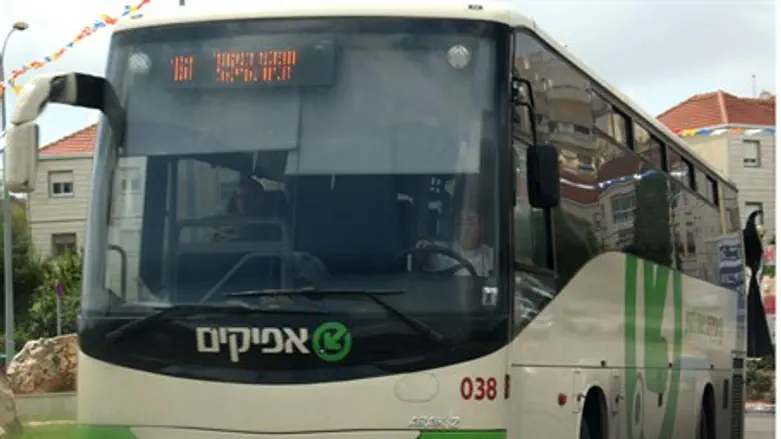
Defense Minister Moshe Ya'alon backtracked somewhat on recent statements that he would prevent Palestinian Arab workers from alighting to state-funded buses in Judea and Samaria, clarifying Wednesday that "no decision has been made yet."
"No decision was made recently, certainly not regarding public transport," Ya'alon said. "Everything else is just manipulation [of what he said - ed.]."
Ya'alon did however stress that he is attempting to ensure that a ban does pass through the Knesset - and that, contrary to some media reports, it is not a matter of nationalist lobbying but a legitimate security issue.
"It should not take a man of security to understand that when there are 20 Arabs and a Jewish driver, and two or three people with weapons along with a soldier or two, it's a recipe for a terror attack," he said. "And in these situations, unfortunately, we have seen that this has become a reality, so I am repeating this: I am not forbidding Arabs from traveling in Judea and Samaria, and I have no intention on banning them - but these buses are filled with people given work permits to work in Israel, and I cannot promise, that as a result, someone won't suddenly get overcome by feelings of revenge for whatever reason and change the security situation, as it were."
"It has happened in the past," he noted.
One notable recent case was the horrific murderof 19-year-old Eden Atias, hy"d, the IDF soldier who was stabbed on a public bus by a Palestinian teenager who had crossed into Israel illegally through the public bus system from Jenin.
Sexual harassment and overcrowding have also become somewhat commonplace on Judea-Samaria buses, so much so that a special hearing on the region's "nightmarish" public transport was held in November 2013.
But many media outlets took Ya'alon's comments Sunday, declaring intent to prevent further incidents, as "racist," and the media storm has driven Attorney General Yehuda Weinstein to demand clarification on the issue.
It is also worth noting that the ban would not apply to other Palestinian Arabs, for example students or faculty at Ariel University, but specifically to the large numbers of manual laborers whose journey until now have been subsidized by Israeli taxpayers' money.